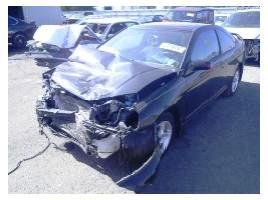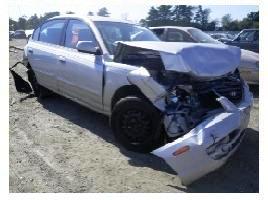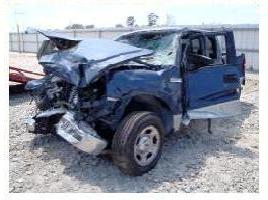Ask an Attorney a Question for FREE!
Small Claims Court
Important Considerations | Do not go to the small claims court until you read this
Small claims court can help you get your peace of mind.

Finally, a forum where you can get the person back in the courtroom and have him explain why he hit you and why he was so irresponsible.
In many occasions you will be taking to court people that were driving under the influence, had no insurance, had no registration, and their license was taken away because of prior several offenses.
Some of these fellows never show up, some do. In any event, you will have the chance to confront them and have them explain their actions. This is, on itself, a great satisfaction. Something you do not get when you have an insurance claim.
If you think about it, some fellows will hit you and then run away. They eventually get caught but usually have no insurance, so your insurance company ends up having to pay for your damage.
What happens to the person that hit you? Nothing! Or just about.
They get a fine that they will probably never pay. Since they have no assets, they are judgment-proof.
Most accidents and infractions are civil and not criminal, unless there is a very severe accident (vehicular homicide, manslaughter, severe injuries, etc).

Why am I telling you this? It is because you might go to court and get nothing at the end of the day. If the person you are going after has no assets (e.g. a house, insurance, a large bank account), then even if you win, you will never see a dime.
Again, you might want to do this if you believe this person someday might come into some money, and then try to collect the judgment then.
You can hire a collection agency to do this for you, but this can end up costing you 50% or more of the total award.
Double check that this person has something to lose so you know you will get paid if you win. If you know that they do not have anything but it makes you feel better, go ahead.
The next important consideration when going to small claims court is that you get only “one bite at the apple.”
This means your case will be heard only once. The property damage AND the injury claim are both compulsory claims.

This means that both claims arise out of the same transaction or occurrence (the car accident) and therefore they MUST BE BROUGHT together. If you do not and decide to bring a claim later on, the court will bar your second cause of action by a legal concept called RES JUDICATA.
This means that if you sue someone for the damages to your car because you need some wheels to go to work but you are injured and do not know the extent of your medical bills and the treatment you are going to need to recover, then you are probably better off waiting until you know for sure what your injury will entail and then go for the whole thing.
If you go for property damage only thinking that you can go after the medical bills later, you will lose your injury claim (medical bills included).
Res Judicata stands for “matter already judged.” It works like double jeopardy, but for civil cases.
This is something that you want to consider before you decide to go after anyone. Make sure all damages are assessed so you get your entire recovery.
Read more here:
Traffict Ticket eBook
Speeding Ticket eBook
1. Small Claims Court (Overview)
2. When to go Small Claims Court
3. Important Small Claims Considerations
4. How to argue your Small Claims Case
5. Small Claims Court Legal Argument Part I
6. Small Claims Court Legal Argument Part II
7. Arguing in Small Claims (the Police Report)
8. Small Claims Court and the Auto Damages
9. Small Claims and the Injury Claim
10. Collecting the Small Claims Award
11. Appealing the Small Claims Court decision
Total Loss eBook
Personal Injury eBook
|
|
|
For a Free Review of Your Case
Please Call (866) 878-2432 |


